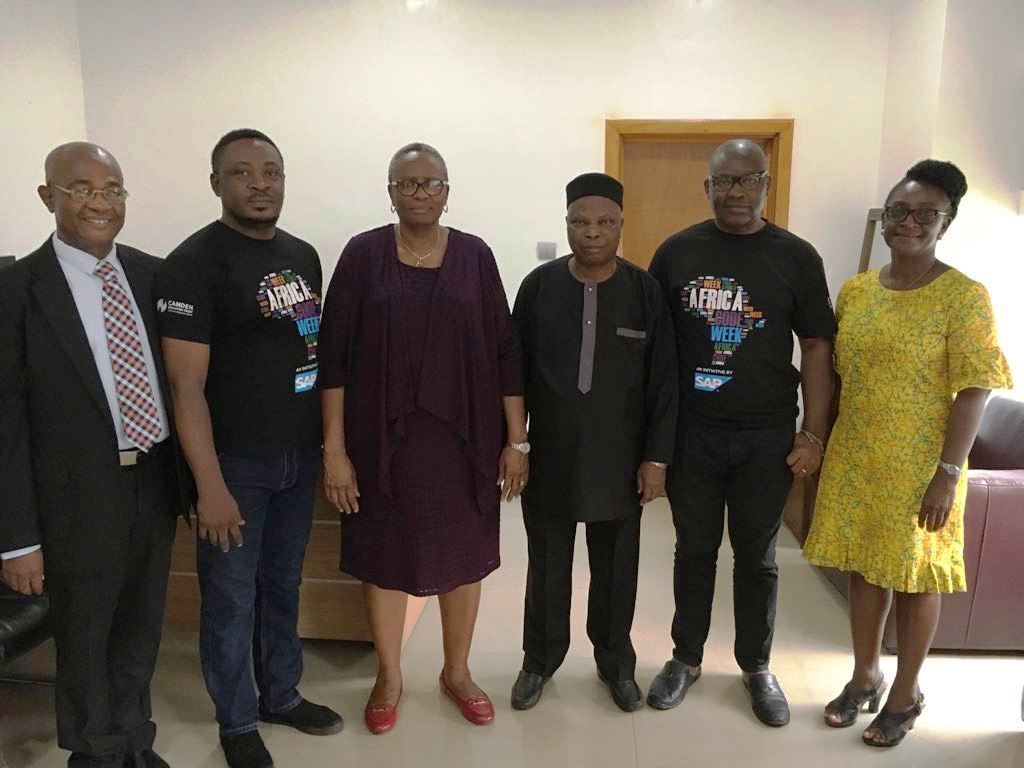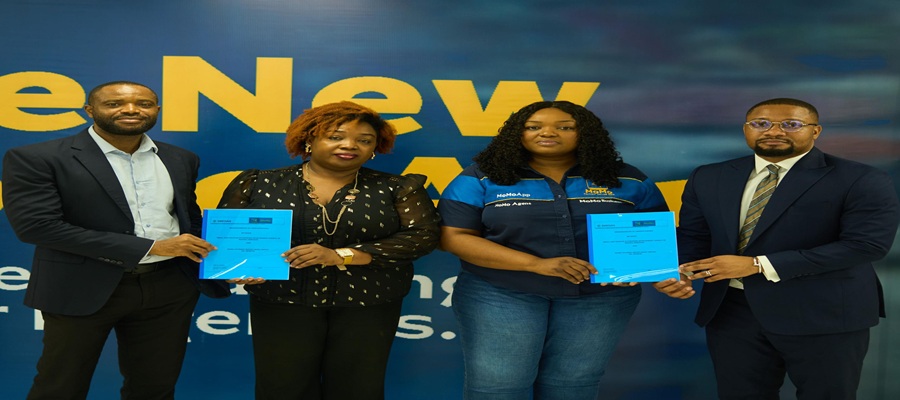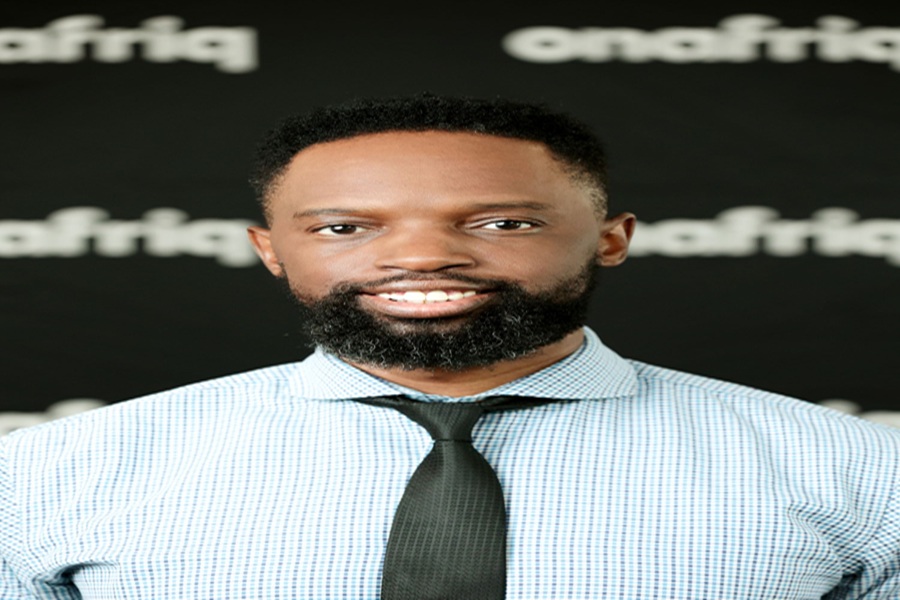Telecom
SAP Initiative ‘Africa Code Week’ Trains Over 500 Teachers in Edo State

Organizers of Africa Code Week (ACW) have said that over one thousand teachers will benefit from information and communications technology (ICT) training in Edo and Enugu States in 2018.
The train the trainer program is part of activities for this year’s 2-week-long ACW in Nigeria and many other African Countries meant to run in every 35 countries from 15 -26 October.
Already, ACW team trained 512 teachers, 26 staff of the ICT Agency of the Edo State government and 32 students from local Universities have been trained in Benin City, next stop is Enugu on 3rd & 4th September where additional 500 teachers are set to be trained.
Launched in 2015 by SAP, in partnership with the Cape Town Science Centre and the Galway Education Centre, Africa Code Week is an initiative that brings together hundreds of schools, teachers, governments, businesses and non-profit organisations with the aim to empower young people across Africa with digital literacy skills.
Working closely with private, public and non-profit partners to drive sustainable learning impact across Africa, the Initiative has benefitted 1.8 million young Africans so far.

Teachers from Edo State receiving training on ICT courtesy SAP initiative called Africa Code Week
Today, it enjoys strong partnerships with the public, private and non-profit sectors are the driving force behind the initiative’s ambitious goals and ability to build community capacity in ICT education across an entire continent.
Africa Code Week is now actively supported by key partners UNESCO YouthMobile, Google, Camden Trust and the German Federal Ministry for Economic Cooperation and Development (BMZ), 15 African governments, over 150 partners and 100 ambassadors across the continent.
With a goal to empower 70,000+ teachers and positively impact the lives of 2 million young Africans by 2020, ACW is built to be sustainable and provide long-term impact.
Commenting on the program, Edo State Governor, His Excellency, Godwin Obaseki affirmed that he’s focused on building capacity in the area of education development.
The Governor expressed his appreciation to SAP, Google, UNESCO and other partners for bringing Africa Code Week to Edo States as this will serve as a catalyst for achieving great success in the State’s digital literacy plan.
To underpin the government’s commitment to Africa Code Week, all senior state executives attended the event to provide support and inspiration to the teachers.
These include but not limited to the following: Rt.Hon.Gabriel E. Oiboh Chairman Post primary Education board (PPEB); Miss Yuwa Naps Executive Director, Training and Exams Services, ICT Agency; Mrs. Gladys Idahor Head of Service; Mr. Taiwo Akerele, Chief of Staff; Dr. Adesotu, Commissioner for Science and Technology and Mr. Emmanuel Agbale, Commissioner for Education.
Mr. Olajide Ademola-Ajayi, Nigeria’s Coordinator, Africa Code Week, Speaking on the preparations for 2018 edition, said that annually, SAP arrange Train-the-Teacher sessions (TTTs) that are organized either by the Africa Code Week team or partnering Ministries and non-profit partners in the run-up to October events.
“With 72 students engaged by every trained teacher on average, ACW TTTs are key multiplier and enabler for digital skills to become core pillar of basic education in each participating country. So, we are excited about Edo and Enugu State Governments’ acceptance to work with us and other partners to digitally impact both the teachers and students.
Mr. Ademola-Ajayi said that participants should expect to gain knowledge in creative computing through hands-on, playful learning, that typifies Africa Code Week- the coding enablement program for Africa’s teeming young generation.

participants display their certificates at Edo State training session
Since 2015, Africa Code Week saw over 1.8 million youth introduced to coding skills across 35 countries in 2015, beating yearly initial targets by a huge margin.
Also, over 5,000 free coding workshops have been organized continent-wide and online since day one, ranging from Scratch all the way to Web programming.
In preparation every edition, SAP has deployed its own IT skilled volunteers to train over 25,000 teachers, parents and local volunteers over the past three years, all over Africa.
With average female participation reaching 46.5%, ACW also makes huge strides towards empowering girls in the digital century and fostering gender equality in African ICT education.
With 390,046 youth introduced to coding during ACW 2017 and the highest engagement ratio of 1,622 youth engaged per 100,000 population.
Telecom
MoMo PSB, SMEDAN Forge Pact to Digitise Nigeria’s SMEs

MoMo PSB, MTN Nigeria’s fintech powerhouse, sealed a game-changing pact with the Small and Medium Enterprises Development Agency of Nigeria (SMEDAN) on February 3 at its Victoria Island headquarters, unleashing digital and financial tools to turbocharge SMEs nationwide for seamless operations, revenue surges, and sustainable scaling.

MoMo PSB, SMEDAN
The partnership arms SMEDAN-registered merchants with MoMo’s multi-channel arsenal—apps, POS, USSD, partner portals, and custom platforms—to hoover payments across streams, automate payrolls, juggle tills and shop chains, and boss core business metrics from one slick dashboard.
This powerhouse duo targets Nigeria’s SME engine room, where digital chokepoints throttle growth, injecting MTN’s MoMo muscle to slash friction and unlock efficiencies for mama-put hustles to mid-tier factories alike.
Industry watchers hail the MoU as a masterstroke in President Tinubu’s economic revival playbook, fusing government SME scaffolding with private-sector fintech firepower to birth a new breed of digitally dominant entrepreneurs primed for AfCFTA conquests.
Telecom
MTN Ignites Teacher Revolution: 5,000 Digitally Armed for Phase Two

MTN Foundation and SAIL Innovation Lab have roared into Phase Two of their blockbuster Teachers Fellowship Programme, onboarding 5,000 elite educators from Nigeria’s 36 states and the FCT since January 13 to turbocharge public schools with cutting-edge digital wizardry and global teaching firepower.

MTN
This mobile-first crusade, laser-focused on arming primary and secondary school titans for the digital economy showdown, kicks off with a grueling four-week virtual bootcamp via WhatsApp and Google Classroom—slashing travel barriers for even the remotest rural warriors.
Organisers promise peer-to-peer fireworks and real-time gut-checks, capping Stage One with a virtual gala saluting milestones before culling the pack to a fierce “Top 500” via engagement, assessments, and hustle for Phase Two’s inquiry-based mastery and deep-dive digital metamorphosis.
MTN Foundation’s Executive Director Odunayo Sanya lit the fuse: “Teachers are the backbone of our education system. By empowering them with digital competencies and innovative teaching methods, we are directly investing in the future of our youth.
This Fellowship Programme is designed to ensure that our educators are not just keeping pace with global best practices but are actively shaping the next generation of innovators and leaders.”
Nigeria’s heftiest private teacher uprising scales from last year’s triumphs, minting classroom commandos as state ambassadors to ignite inquiry-driven, tech-fueled learning revolutions coast-to-coast.
Telecom
Onafriq, PAPSS Launch Wallet-Based Payments Pilot from Nigeria to Ghana

Onafriq Nigeria Payments Ltd, a CBN licenced payment service provider, partners with The Pan-African Payment and Settlement System (PAPSS) to pilot the continent’s first wallet-based outbound payments from Nigeria to Ghana – fully in Naira and instant, without relying on hard currency conversion, in partnership with Banks and Mobile Money Operators.

The pilot service, approved by the Central Bank of Nigeria (CBN), enables cross-border intra-Africa payments for individuals, merchants, and traders.
In particular, the service will benefit SMEs, the real engine of intra-African trade; all now have access to a faster, cheaper way to reach customers and suppliers across the border.
By reducing barriers to cross-border trade, the new service will allow these businesses to grow their addressable markets and activity. From the 1st of December, this service will be fully operational for a 6-month period.
Through the partnership with PAPSS, Onafriq is supporting the operationalization of the AfCFTA (Africa Continental Free Trade Area) mandate.
The mandate itself is driving tariff-free trade for the 54 member states of AfCFTA. Within the partnership itself, Onafriq provides the mobile money rails, with an ecosystem consisting of over 1 billion mobile wallets.
Meanwhile, PAPSS brings a network of over 160 commercial banks, representing an ecosystem of more than 400 million bank accounts across its 19 African countries of operation.
The two partners are essentially seamlessly connecting two worlds: mobile money and banking. As a consequence, intra-African trade transactions will take place more easily and opportunities will be created.
Currently, Africa is made up of bank and mobile-led markets, with siloes often inhibiting transactions between these economies. However, this partnership will remove these boundaries. With over one billion mobile wallets and 500 million bank wallets across Africa, this partnership will allow for cross-border collaboration at scale.
This partnership builds on Onafriq and PAPSS’ existing partnership for payments into Ghana, announced earlier this year.
Mxolisi Msutwana, Managing Director Anglophone West Africa said, “Our work with PAPSS shows what collaboration at scale can unlock—seamless, secure connections between banking systems and mobile money ecosystems.
“This is how we open bi-directional trade corridors, reduce costs for businesses, and give African enterprises the rails they need to trade with confidence in their own currencies. The vision is continental, but it starts with practical steps like this one.”
Ositadimma Ugwu, Chief Information Officer, PAPSS, added “Too often, African businesses and individuals see borders as roadblocks instead of opportunities. With this step, we’re challenging that mindset, giving Nigerians the ability to send value next door with the same ease as sending a text message.
“Our vision is simple: make Africa’s borders invisible to payments. This pilot makes that a reality, moving us closer to a continent where payments don’t pause at the border.”
This new Nigeria-to-Ghana outbound capability builds on the successful Ghana-to-Nigeria instant payments corridor launched earlier this year – further proof that Africa’s payments future is local, instant, and inclusive.

 E-Financial2 days ago
E-Financial2 days agoAccidental Billionaire Opts for Jail Instead of Returning Money Credited Him by Mistake

 News2 days ago
News2 days agoUS Set to Deport 79 Nigerians on Criminal List

 E-Financial2 days ago
E-Financial2 days agoSEC Warns of Potential Ponzi-style Risks in AURUM BOT, ModMount

 News2 days ago
News2 days agoUngoverned AI is Quietly Scaling Risk in Nigeria – Dr. Naiho

 Telecom2 days ago
Telecom2 days agoAirtel Nigeria Commits to Boosting Nigeria’s Digital Infrastructure

 E-Business1 day ago
E-Business1 day agoOADC Lagos Reinforces Commitment to Local Data Hosting and Digital Transformation @ NDPC’s National Privacy Week Summit

 Telecom2 days ago
Telecom2 days agoGoogle, African Partners Launch WAXAL to Empower 100m Africans in AI Era

 News2 days ago
News2 days agoFirst Lady Commissions Dream Centre @ OAU



























